X-Men Origin Story
Most of my fellow 20- and 30-something year old nerds should be able to relate to the beginning of my love for comic books. It didn’t start with the oversized guns and muscles of the 90’s comic books but with the litany of superhero cartoons. I was born predisposed to loving superheroes. My dad collected comics in the 70’s and amassed a massive collection of Bronze Age Marvel books. Your boy did not have the attention span or appreciation for art to give these books due justice. I was enticed by Tony Stark slamming a hammer on a forge to the beat, “I. AM. IROOON MAAAN!”. The raging guitar solo while Peter Parker dodges Lizard’s tail. The silhouette of the God Damn Batman dropping down on criminals. And of course, I lived for sitting in my underwear engorging myself on bowl after bowl of Lucky Charms watching Rogue punch the absolute crap out of a Sentinel.
X-Men: The Animated Series planted the seeds of my undying love for the team of oppressed mutants. There are certain truths that were understood about the characters in this show.
Wolverine and Gambit were cool. Cyclops and Jubilee were not. At 10 years old, who was I going to gravitate towards? The badass rebel and the suave ladies’ man or the teacher’s pet and the chick with the fireworks? (By the way, it would be an interesting exercise unpacking the ingrained toxic masculinity that underlines a lot of our idolizing Gambit and Wolverine.) Cyclops was almost designed to be hated by us. I heard a hilarious response on a podcast where someone said their favorite character was Cyclops. “Oh, you’re the kind of person that likes Leonardo from the Teenage Mutant Ninja Turtles and Superman”. It got a laugh, even from me, but there’s a truth to it. Characters that follow a straightforward code of conduct, especially one set by an authority figure (In Cyke’s case, Professor X. In Leo’s, Master Splinter) were not exciting for kids being told constantly that we need to listen to parents and teachers because they know better.
Another factor is that these characters were often written as a contrast to the “cool rebel” (Wolverine and Raphael). The rebel image channeled our conviction that we knew better than adults. They played into the fantasy of being strong or slick enough to reject their authority and damning the consequences. It was definitely a fantasy because try quoting Wolverine to Black parents — “I go where I wanna go”. As a teenager, this trend continues in the 2000’s with X-Men: Evolution and the beginning of the X-Men movie franchise.
To Me, My X-Men
Around the end of 2004 I started buying comic books. The first book I bought was X-Men #157. The team was Rogue, Gambit, Iceman, Polaris, Juggernaut and Havok as leader. Noticeably different from the animated series and the movies, though, was that the headmaster of Xavier’s School for Gifted Youngsters was Cyclops. It would still take three more years for the seed to take hold when I read Astonishing X-Men #23. This story featured my favorite X-Men team to date: Cyclops, Wolverine, Emma Frost, Colossus, Shadowcat, Beast, and Armor on an alien world. Cyclops has lost his powers due to a mental block. In an insane plan, Cyclops takes advantage of the alien resurrection technology and commits suicide pretending to sacrifice himself to save the team.
The aliens revive him for interrogation, at which point awakened Cyke smirks, blasts the alien through the roof with his returned and temporarily controlled optic blasts and telepathically calls out, “To Me, My X-Men”. This display of utter badassery made me wonder if I had misjudged this character. Curious, I back tracked to find what Cyclops had been up to in recent years. I landed on the 2001 New X-Men run by Grant Morrison and took it from there. This is where I truly started to understand why Cyclops is an amazing character, especially for a comic reader coming into adulthood.
Who Do You Want On Your Project?
An easy mistake to fall into is thinking that the iteration closer to the animated series and movies doesn’t hold value. That’s bullshit. Summers’ reserve and control reflect his power. He has a nuke behind his eyes that will destroy almost anything he looks at.
Early Cyclops understands power and responsibility better than Spider-Man. Plus, when you get older, responsibility becomes more and more important. As a kid growing up the idea of the rebel was cool but once you grow the hell up Cyclops starts looking a lot more attractive. Those late teens when we start getting jobs and doing intensive group projects, that’s when the perils of teamwork become apparent. Suddenly the teammate who won’t listen to anyone or is nonchalantly flirting with everyone becomes a liability. Imagine a group project with Wolverine’s berserker raging ass, goofy Iceman, bougie Emma Frost, and a genius like Beast. The ability to command the respect of strong-willed personalities is a superpower.
From Boy Scout to Malcolm
Cyclops’ early demeanor serves as a launching point for true character development over the decades. Cyclops was an early ship for Charles Xavier’s dream of peace between humans and mutants; “Feared and hated by the world they swore to protect”. Thing is, Professor Xavier proved time and time again that he was shady as hell and Cyclops got disillusioned. The classic understanding of X-Men mythos is that Xavier represented Martin Luther King and Magneto represented Malcolm X. As far as I know Malcolm X never suggested orchestrating a terrorist attack or calling for Black supremacy and white suppression. Cyclops was the true Malcolm X allegory in the X-Men. “Be peaceful, be courteous, obey the law, respect everyone; but if someone puts their hand on you send them to the cemetery.” Malcolm X’s words were encapsulated when Cyclops led the X-Men to a sanctuary off the coast of San Francisco and then again when he put on the X-mask. Cyclops said, “screw that non-violence nonsense” when he sanctioned a team of mutant-kind’s most badass trackers and killers to preemptively hunt down threats to mutant kind. Also, don’t forget what caused the infamous Schism between Cyke and Wolverine.
When the Hellfire club threatened the incapacitated X-Men, leaving only young Idie Okonkwo (the original Todoroki, btw), Cyclops told her to do what needed to be done and she murdered the lot. He backs off and softens his stance later but only to a point. When he dons the X-mask in the aftermath of AvX, his X-Men have no patience for racist police terrorizing new mutants. Cyclops even articulates the best example of Dr. Martin Luther King Jr’s criticism of the “white moderate” in X-Men I can think of. When the Avengers confront the X-Men as they’re trying to help young mutants.
Cyclops: “Rogers, I am sure you’d like to think we’ve come far . . . but I’m telling you firsthand, we have not”.
The Captain even tries to pull a “why can’t you be like one of the good ones” referencing Wolverine and Havok’s more pacifist, accommodating activities. Cyclops is the most relatable X-Men because he embodies the natural evolution almost everyone goes through; from a naïve optimist to a determined pragmatist. I observed Cyclops’ transformation during a pivotal point in my education. My knowledge of the Civil Rights struggle was centered on a common version of American History taught in even mostly Black schools that was very superficial and generous to the country. It wasn’t until later that I learned the more complicated truths about Dr. King’s radicalism and the federal government’s efforts to subvert and sabotage the fight for equality. My journey to truth mirrored Cyclops’. I naturally feel a kinship.
The Love Triangle (Not That One)
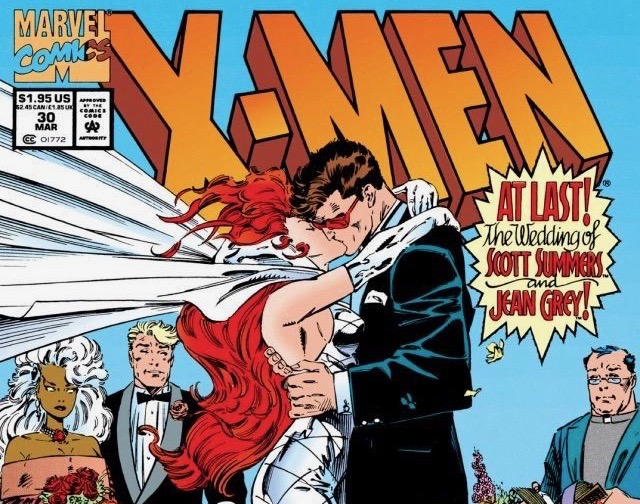
My last exhibit in the case for Cyclops’ awesomeness is his tumultuous relationships. There are three major players in Summers’ orbit: Jean Grey, Emma Frost, and Wolverine. We underestimate how iconic the romance between Cyclops and Jean Grey is in the Marvel Universe. It was in the works from Uncanny X-Men #1 in 1963 and comes second only to Reed Richards and Sue Storm in the Marvel Universe.
It’s tempting to talk about the love triangle between Scott, Jean, and Wolverine but I actually don’t find it to be the most interesting aspect of Cyclops’ relationship with either of the two. Instead, I love how the foundational love between Scott and Jean tragically falters. Starting with the time Cyclops spent fused with Apocalypse, the relationship with Jean was too juvenile to last. Emma Frost is Cyclops’ true love and I’ll defend that ship to the figurative death. First let’s appreciate how messy this love triangle is. It isn’t unlike how I learned that love and lust are complicated.

The reason that Cyke works with Emma and not Jean can be illustrated by the two women’s difference in psychic ethic. Jean Grey refuses to violate people’s minds unless they’re a combatant. In her relationship with Scott she gave him his space to work his shit out. Because he’s still the repressed kid that fell in love with her in the first place, he couldn’t communicate effectively with her. That’s when he reached out to Emma Frost.
I’m not endorsing infidelity, but Emma was exactly what Scott needed. She has no qualms digging into Cyclops’ head and in turn, she chose to be open and honest with him. Cyclops and Jean Grey feel like the high school sweethearts that end up getting married too young. Cyclops and Emma Frost feel like grown-ass adults in love.
Behold! The Conclusion
I polled some friends on their feelings on Cyclops — as iconic as he is, people are very hot or cold on him. A sampling of the responses:
“The Boy-Scout, The Pit of Many a Joke, Only started becoming cool to me in recent years. Bless his Glow-Up.” — Carrie
“Cyclops is unequivocally sound in all of his decision making and tactical planning. With ocular nukes hiding behind that charming smile, Scott Summers is an incredible character and one of the most endearing leaders to ever do it.” — Ja-Quan
“I wasn’t a fan for years, but after House of X #4, how can I not be?” — Leslie
“An analogy, Cyclops is to the X-Men what LaCroix is to flavored beverages.” — Joseph
“He was better in Westworld. Heh”. — Anonymous
Cyclops is a complicated character with a long development arc covering both heroic, and less heroic, deeds. That’s what makes him engaging. That’s why when he calls for his X-Men, they show up for him. That’s why he’s the leader to the end. There are few characters that illicit such strong responses both negative and positive. But when it comes to Scott Summers, my Black ass is in love.
Want to get Black Nerd Problems updates sent directly to you? Sign up here.
Follow us on Twitter, Facebook and Instagram.



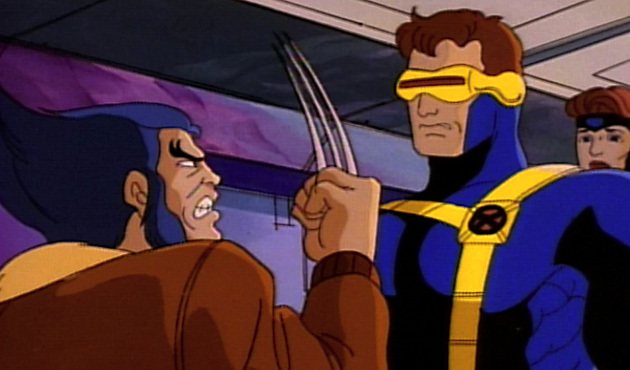
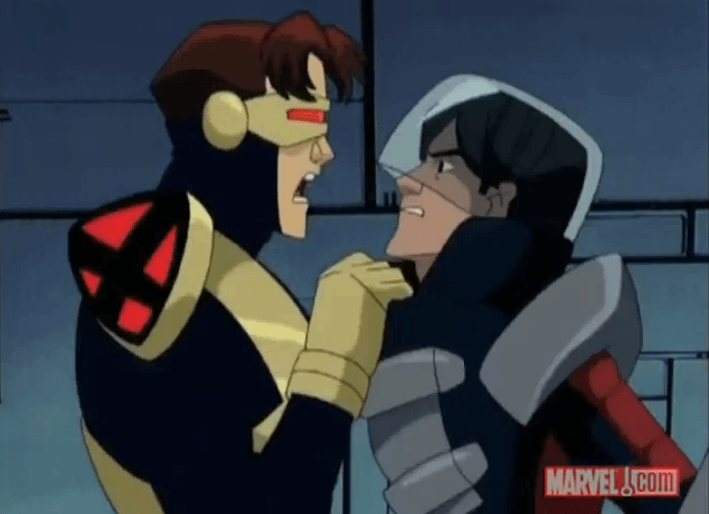

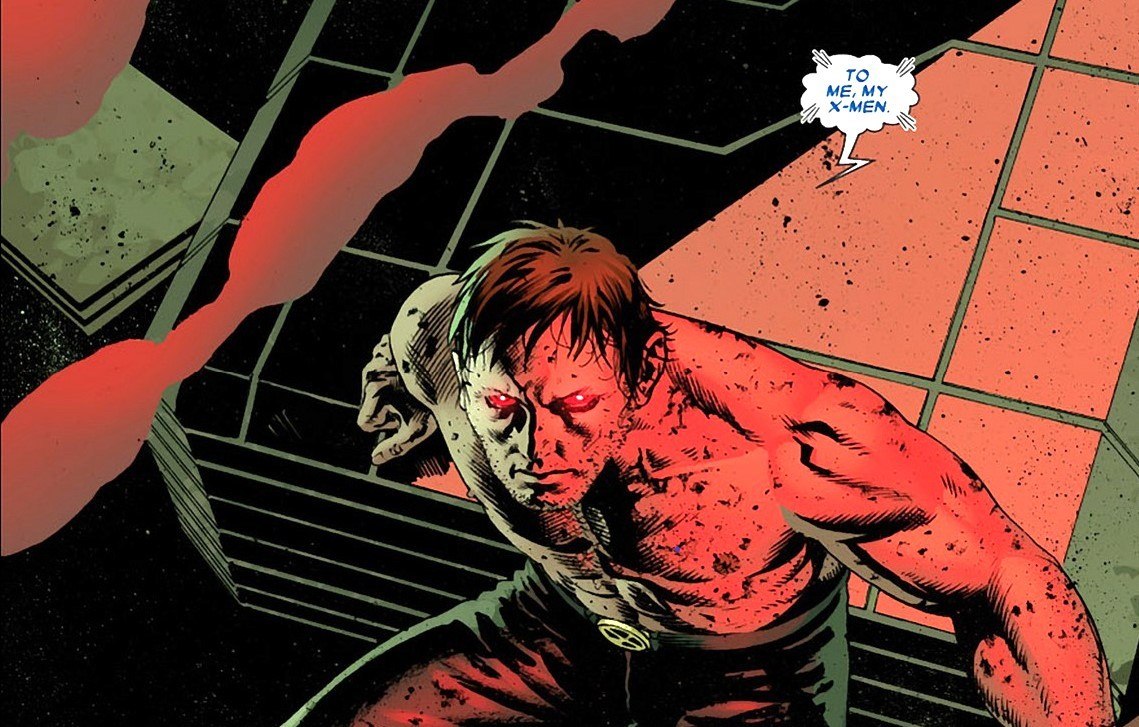
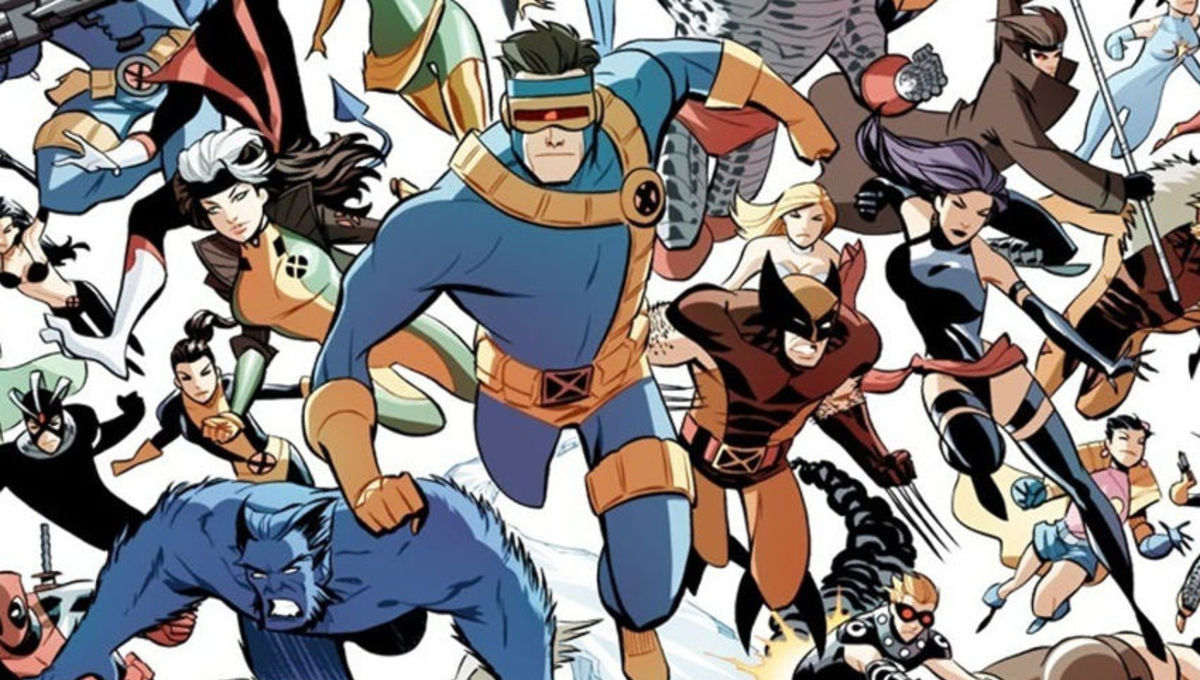
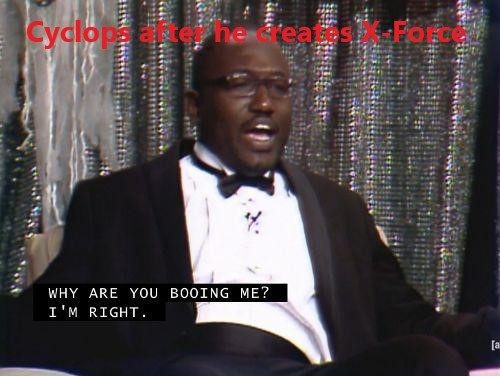
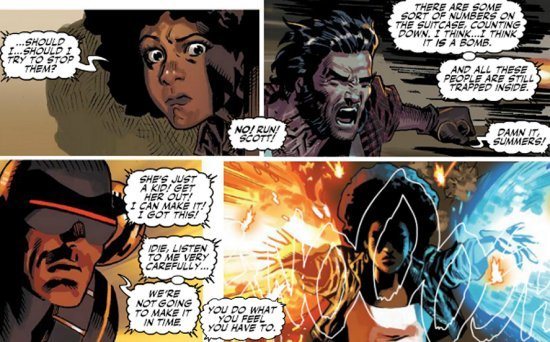
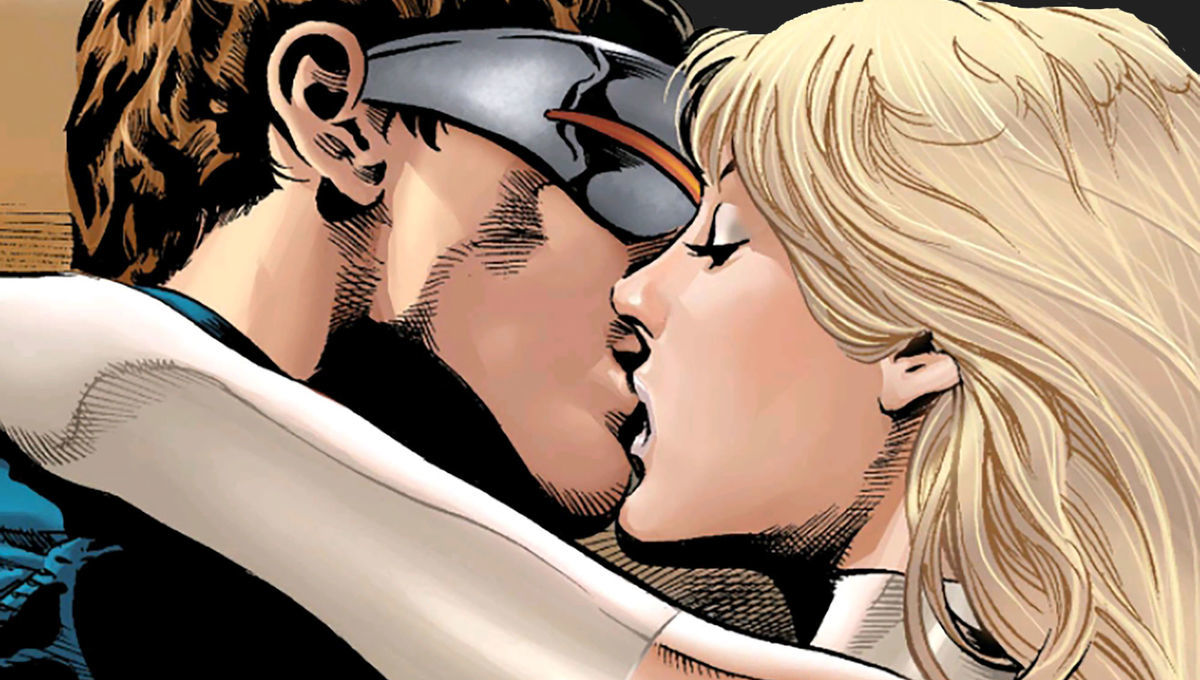
Show Comments